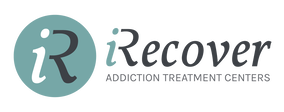The Roles of Family Members in a Substance Abuse Relationship

Families of addicts, including both immediate and extended family members are affected in some way by the individual’s substance abuse.
Addiction impacts a family’s finances, physical health, and psychological wellbeing. In every family, each person plays a role to help the family function better and to maintain a level of stability, and balance. The effects of drug addiction on family members vary, but when substance abuse is added to this dynamic, the family roles naturally shift to adjust to the new behaviors associated with the substance use to continue maintaining order and balance.
There are six family roles in addiction that are used to understand how the family functions around the substance abuser. Families of drug addicts include “the enabler,” “the mascot,” “the hero,” “the scapegoat,” “the lost child” and “the addict.”
The Enabler: This role is often assumed by a non-addicted spouse or an older child in single-parent homes. The enabler takes care of all the things that the addict has left undone, including taking care of finances, ensuring children get to school and make reasonings for the addict in social and business situations. The enabler is often in rebuff about the severity of the addict’s problem and will repeatedly make excuses for him or her instead of getting them professional help.
The Hero: This role is generally assumed by an older child in the family who overachieves and appears confident and serious. Heroes take on responsibilities in the home that seemingly exceed their developmental stage and often assume parental roles. The hero is obsessed with perfection, so it makes the role ever more difficult to maintain as addiction progresses and responsibilities continue to mount.
The Scapegoat: This is the child in the family who consistently misbehaves and exhibits rebellious tendencies in the face of authority. These people often get into trouble in school and at home. As these children move toward adulthood, many get into trouble with the law as well. These behaviors are reflective of a toxic and messy atmosphere in the house.
The Mascot: In a painful home environment, some individuals assume the role of the mascot and use humor as a coping mechanism. The mascot is aware that his or her humour may be bringing a momentary sense of relief to the family and will continue to maintain this role to achieve balance and comfort in the home.
The Lost Child: The person in this role is isolated from other members in the family and has trouble developing relationships. The lost child has difficulty in social settings and often engages in fantasy play to distract themselves both emotionally and physically from the negative home environment.
The Addict: Many chronic substance abusers feel excessive shame, guilt, and remorse about the pain and distress they have caused their families. However, there are also many addicts who do not want to stop their substance abuse. This choice can cause anger and resentment throughout the family.
When these roles are established during childhood, they become behavioral patterns that continue to play out and evolve throughout adulthood. The effects of drug addiction on family members when the addiction is developed later in life creates another set of issues, as many family roles have already been firmly set. The blurred line between parent/child relationships and parent/friend relationships also make the situation more difficult to fix. Nearly every person in contact with an addict is impacted in some way.
It is rare that the effects of an addiction are limited exclusively to the addict. Everyone around him or her is affected in some way. Often, the people who spend the most time around the addict are friends, family, and co-workers – these are the people who are likely to be most impacted by the substance abuser. Family members, especially non-addicted spouses, are forced to pick up the slack for the addict, make excuses for his or her behavior, and potentially endure sexual, physical, and emotional abuse. In many cases, extended family members and close friends must help financially and in other ways to account for the disregarded responsibilities by the addict. Children suffer in school and are more likely to be involved with drugs and alcohol as adults.
Coworkers are not always as close to the addict, but they may also be affected by having to increase their capabilities to make up for reduced job performance. Nearly every person in contact with an addict is impacted in some way. Therefore, an addictions treatment facility can be so beneficial. The recovery is most successful when the friends and family members closest to the addict are involved. Since the effects of drug addiction on family members are so strong, addiction recovery needs to heal the whole family.
If your family is suffering from a loved one’s addiction, our addiction treatment facility is here to help. Call us 24/7 to speak with an intake specialist who can get the whole family moving on the right path towards sobriety.
1-877-387-4155
www.iRecover.ca
